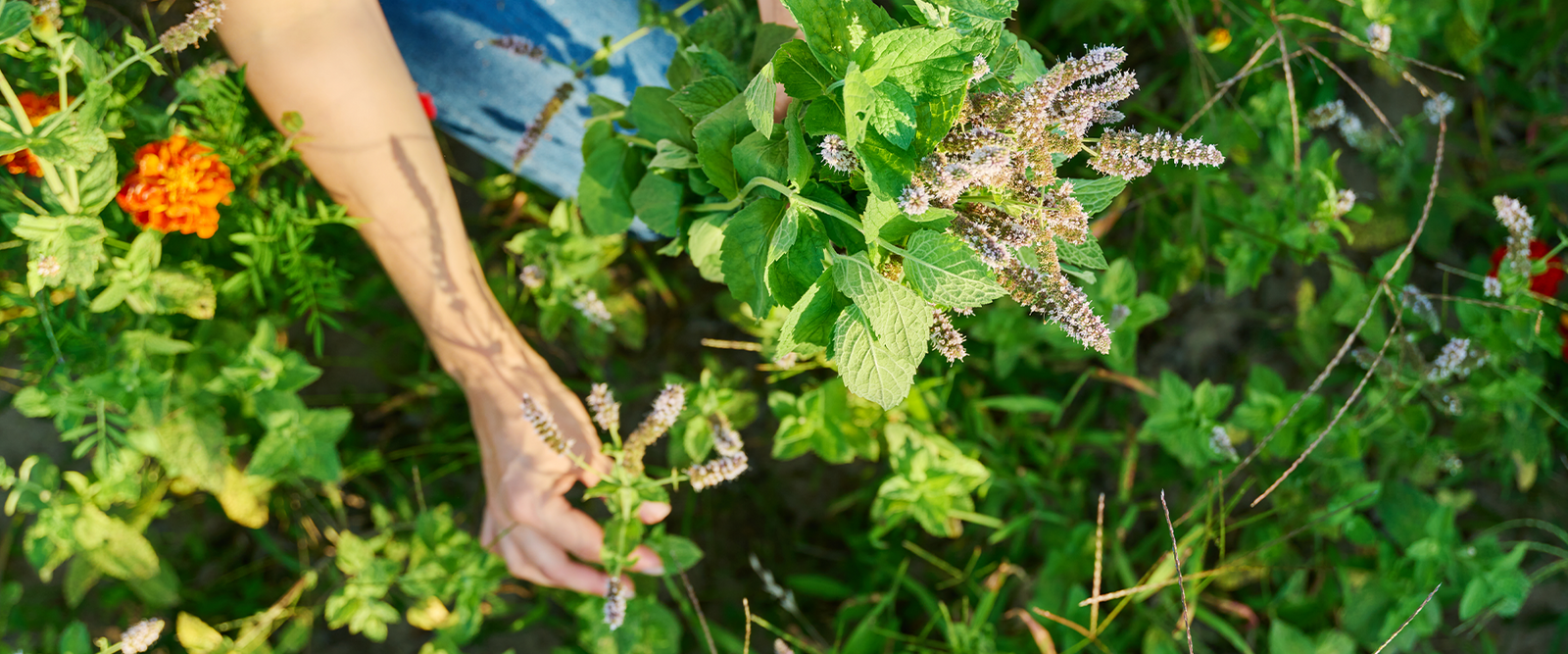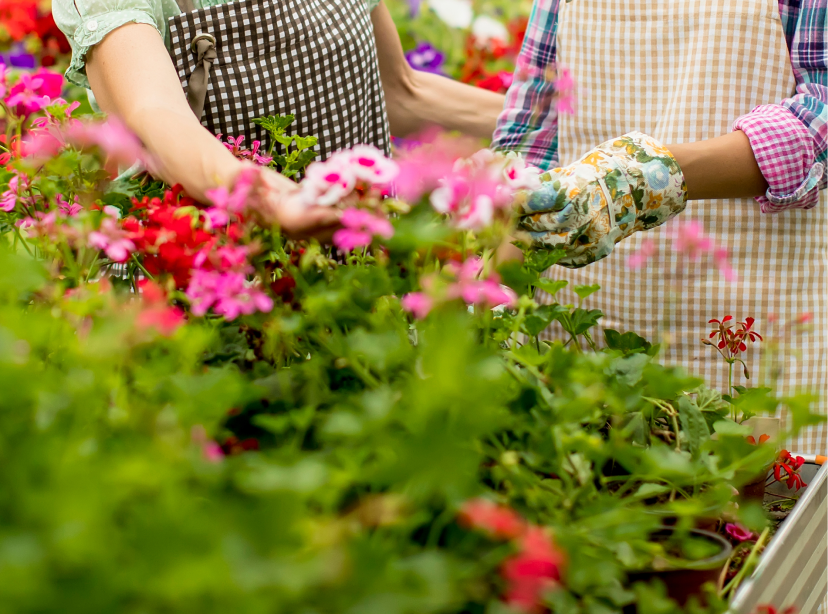Pruning has great benefits for your plants. It encourages healthy growth, beautiful blooms, and longer plant life. The benefits of pruning herbs are no exception! Removing dead or dry leaves, trimming parts of the stem, or just maintaining their shape signals the plant to continue in the growth stage and means more harvest for you. Regularly pruning also allows you to see if your herbs are struggling with a disease or have an insect problem. Thankfully, if you prune consistently, you’ll notice these small changes and you can remove the affected area before it becomes serious.
How to Prune Herbs
For some gardeners, especially newbies, pruning is a dreaded task. It’s usually not physically difficult – it just doesn’t seem right to prune perfectly healthy leaves. But trust us, this is important! Pruning your herbs is as simple as pinching with your fingers for smaller stems and using garden shears for thicker ones.
As a general rule, using your fingers to pinch off a stem is acceptable as long as you take care not to crush the stem. However, for best results, we recommend using sharp pruning shears. Professional gardeners prefer this method because it is more efficient and does not damage the plants or stems of your herbs.
PRO Tip: Avoid tearing or ripping off the stem of your plant, which can lead to a disease. Make sure to make precise clean cuts every time.

What You Need
Make sure you have reliable pruning shears that will make your pruning experience enjoyable and easy. Here are some factors to consider when finding perfect pruning shears for your herb garden:
1. Durable Blades
Choose pruning shears with blades that will remain sharp for a long time and won't rust or get damaged easily. The best hand pruners have strong and high-quality steel blades, which ideally are high carbon steel.
2. Ergonomic Design
We know that pruning is a “repetitive hand motion” kind of task. Make sure to get ergonomic-styled pruners designed for comfortable pruning and easy handling.
3. Sharp Cutting Action
We cannot stress this enough -- you need razor-sharp pruners to make clean precise cuts that won’t damage your herbs and plants. Pruning should help them grow, not the other way around!

3 Tips for Pruning Herbs
-
Nip Back Leafy Herbs
Herbs like basil and cilantro are grown for their leaves. If you don’t prune them, these plants will grow, blossom, and eventually die. Leafy herbs need to nipped at the leaf nodule to encourage bush habit. This will also ensure that plenty of new leaves will grow if you consistently prune them.
PRO Tip: During later season, even the best-kept leafy herbs will begin to seed. Plant a few herbs to grow as attractive specimens in visible locations.
-
Trim Woody Herbs
Rosemary, sage and thyme are herbs that become woody with age. You need to prune (not just pinch) the stems to keep them from becoming woody. This type of pruning is different from how you prune to harvest for your kitchen supply.
PRO Tip: It is best to prune your woody herbs during early spring as soon as you see new growth. If you prune late in the season, the plant will begin growing again instead of saving energy for overwintering.
-
Maintain Garden Health
Pruning helps with disease prevention. Herbs that are left unpruned will become overgrown, crowded, and a breeding ground for mildew growth. Pruning your plants allows air to flow more freely around the stems and keeps the plants healthier.
PRO Tip: Overgrown herbs can easily reseed and take over a garden. Pruning will keep everything in check, healthy, and growing on your schedule.

Herbs have so many health benefits. Research shows that herbs are rich in antioxidants and may help manage heart disease, cancer, and diabetes. Add that to the fact that maintaining and caring for a herb garden is straightforward and fairly easy, having one is pretty rewarding right?
Are you ready to start planting your own herbs? We suggest to keeping this short guide with you as a reminder. It’s easy, you only need to prune your herbs regularly!




